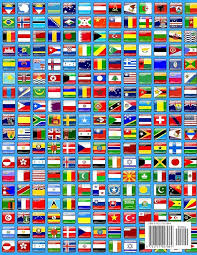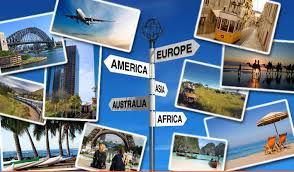
Navigating Global Healthcare: The Role of a Health Tourism Facilitator
The Role of a Health Tourism Facilitator in Global Healthcare
Health tourism facilitators play a crucial role in the rapidly growing industry of medical tourism. These professionals serve as intermediaries between patients seeking healthcare services abroad and the healthcare providers in different countries.
One of the primary responsibilities of a health tourism facilitator is to assist patients in navigating the complexities of seeking medical treatment overseas. This includes helping patients choose the right healthcare provider, coordinating appointments and travel logistics, and providing support throughout the treatment process.
Health tourism facilitators work closely with a network of accredited hospitals, clinics, and healthcare professionals to ensure that patients receive high-quality care that meets international standards. They help facilitate communication between patients and healthcare providers, ensuring that all parties are well-informed and prepared for the treatment journey.
Furthermore, health tourism facilitators often provide additional services such as arranging accommodation, transportation, interpreter services, and post-treatment care. By offering comprehensive support, these professionals aim to make the entire healthcare experience seamless and stress-free for patients.
In addition to assisting individual patients, health tourism facilitators also contribute to the growth of medical tourism by promoting destinations as healthcare hubs and facilitating partnerships between healthcare providers worldwide. Their efforts help expand access to specialized treatments and procedures for patients seeking affordable and high-quality care outside their home countries.
In conclusion, health tourism facilitators play a vital role in connecting patients with global healthcare resources. Their expertise, networks, and dedication contribute to making medical tourism a viable option for individuals seeking specialized treatments and wellness services beyond borders.
Top 5 Benefits of Using a Health Tourism Facilitator for Your Medical Journey
- Expertise in navigating the complexities of medical tourism industry.
- Access to a network of accredited healthcare providers worldwide.
- Personalized assistance in choosing the right treatment and healthcare destination.
- Comprehensive support in travel logistics, accommodation, and post-treatment care.
- Facilitation of communication between patients and healthcare professionals for a seamless experience.
Six Drawbacks of Using a Health Tourism Facilitator
- 1. Cost may be higher due to service fees charged by the facilitator.
- 2. Lack of direct control over the healthcare providers chosen by the facilitator.
- 3. Language and cultural barriers may still exist despite facilitator assistance.
- 4. Potential for miscommunication or misunderstandings between patients and healthcare providers.
- 5. Dependence on a third party for critical aspects of the treatment process.
- 6. Limited ability to personally visit and assess healthcare facilities recommended by the facilitator.
Expertise in navigating the complexities of medical tourism industry.
Health tourism facilitators bring invaluable expertise in navigating the intricate landscape of the medical tourism industry. With their deep understanding of healthcare systems, international regulations, and cultural nuances, these professionals serve as trusted guides for patients seeking treatment abroad. Their knowledge allows them to streamline the process, from selecting the most suitable healthcare provider to coordinating travel arrangements and ensuring seamless communication between all parties involved. By leveraging their expertise, health tourism facilitators help patients overcome the challenges of seeking medical care in foreign countries, ultimately facilitating a smooth and successful healthcare journey.
Access to a network of accredited healthcare providers worldwide.
Health tourism facilitators offer a significant advantage by providing patients with access to a network of accredited healthcare providers worldwide. This benefit ensures that patients can choose from a diverse range of top-tier hospitals, clinics, and specialists recognized for their excellence in medical care. By connecting patients with accredited healthcare providers across the globe, health tourism facilitators enable individuals to access high-quality treatments and procedures that may not be readily available in their home countries. This network opens up opportunities for patients to receive specialized care and innovative medical solutions tailored to their specific needs, ultimately enhancing their overall healthcare experience and outcomes.
Personalized assistance in choosing the right treatment and healthcare destination.
Health tourism facilitators offer personalized assistance to individuals in selecting the most suitable treatment and healthcare destination based on their specific needs and preferences. By carefully evaluating each patient’s medical condition, budget, and desired outcomes, these professionals provide tailored recommendations for the best course of action. Their expertise in navigating the global healthcare landscape allows them to guide patients towards reputable hospitals and clinics that offer the necessary expertise and facilities for their treatment. This personalized approach ensures that patients can make informed decisions about their healthcare options, ultimately leading to a more successful and satisfying treatment experience.
Comprehensive support in travel logistics, accommodation, and post-treatment care.
Health tourism facilitators offer a valuable pro by providing comprehensive support in travel logistics, accommodation, and post-treatment care. By managing all aspects of a patient’s journey, from arranging transportation to coordinating lodging and ensuring seamless post-treatment follow-up, these facilitators alleviate the stress and uncertainty often associated with seeking medical care abroad. This holistic approach not only enhances the overall patient experience but also contributes to successful treatment outcomes by allowing individuals to focus on their recovery while knowing that every detail of their healthcare journey is expertly taken care of.
Facilitation of communication between patients and healthcare professionals for a seamless experience.
One significant advantage of a health tourism facilitator is their ability to facilitate clear and effective communication between patients and healthcare professionals, ensuring a seamless experience throughout the treatment journey. By serving as a bridge between both parties, health tourism facilitators help convey important medical information, address any concerns or questions, and ensure that all parties are on the same page regarding treatment plans and expectations. This proactive communication approach not only enhances patient satisfaction but also contributes to better health outcomes by promoting understanding and collaboration between patients and healthcare providers.
1. Cost may be higher due to service fees charged by the facilitator.
One significant drawback of utilizing a health tourism facilitator is that the overall cost of medical treatment may be inflated due to the service fees charged by the facilitator. While these professionals provide valuable assistance and support in navigating the complexities of seeking healthcare services abroad, their service fees can add an additional financial burden to patients already seeking affordable treatment options. Patients should carefully consider and weigh the potential increase in costs associated with using a health tourism facilitator against the benefits and convenience they provide in facilitating access to global healthcare services.
2. Lack of direct control over the healthcare providers chosen by the facilitator.
One significant drawback of health tourism facilitators is the lack of direct control over the healthcare providers selected on behalf of the patients. Due to the intermediary role they play, facilitators may face challenges in ensuring the quality and reliability of the healthcare facilities and professionals recommended to patients. This lack of direct oversight can potentially lead to discrepancies in the standard of care provided, making it essential for patients to conduct thorough research and due diligence before committing to treatment through a health tourism facilitator.
3. Language and cultural barriers may still exist despite facilitator assistance.
Despite the assistance provided by health tourism facilitators, one significant con is that language and cultural barriers may still persist for patients seeking healthcare services abroad. While facilitators often offer interpreter services and cultural support, the nuances of language and cultural differences can pose challenges during the treatment process. Miscommunication or misunderstandings due to language barriers can impact the quality of care received and hinder the patient’s overall experience. Despite best efforts, overcoming these barriers entirely may not always be possible, highlighting a potential limitation of health tourism facilitation services in addressing complex linguistic and cultural disparities.
4. Potential for miscommunication or misunderstandings between patients and healthcare providers.
One significant drawback of health tourism facilitators is the potential for miscommunication or misunderstandings to arise between patients and healthcare providers. Due to language barriers, cultural differences, or varying healthcare practices, there is a risk that important information may be lost in translation, leading to confusion or misinterpretation of medical instructions or treatment plans. This lack of clear communication can jeopardize the quality of care received by patients and may result in suboptimal outcomes or dissatisfaction with the healthcare experience. It underscores the importance of effective communication strategies and thorough coordination efforts by health tourism facilitators to mitigate such risks and ensure that patients receive accurate and comprehensive information throughout their medical journey.
5. Dependence on a third party for critical aspects of the treatment process.
One significant drawback of utilizing a health tourism facilitator is the potential dependence on a third party for critical aspects of the treatment process. Relying on an intermediary to coordinate healthcare services abroad can introduce complexities and uncertainties, as the patient’s experience may be influenced by factors beyond their control. In such cases, the patient may feel vulnerable or disconnected from their healthcare decisions, leading to concerns about transparency, communication breakdowns, or conflicting interests. This dependency on a third party for essential elements of the treatment journey can create challenges in maintaining autonomy and understanding throughout the healthcare experience.
6. Limited ability to personally visit and assess healthcare facilities recommended by the facilitator.
One significant drawback of relying on a health tourism facilitator is the limited ability to personally visit and assess healthcare facilities recommended by the facilitator. Due to geographical constraints and time limitations, patients may not have the opportunity to physically inspect the facilities where they will receive medical treatment. This lack of firsthand experience can lead to uncertainties and concerns regarding the quality of care, amenities, and overall environment of the healthcare provider. Without being able to personally assess the facilities, patients may feel a sense of disconnect and apprehension about their treatment journey, potentially impacting their confidence in the chosen healthcare destination.



